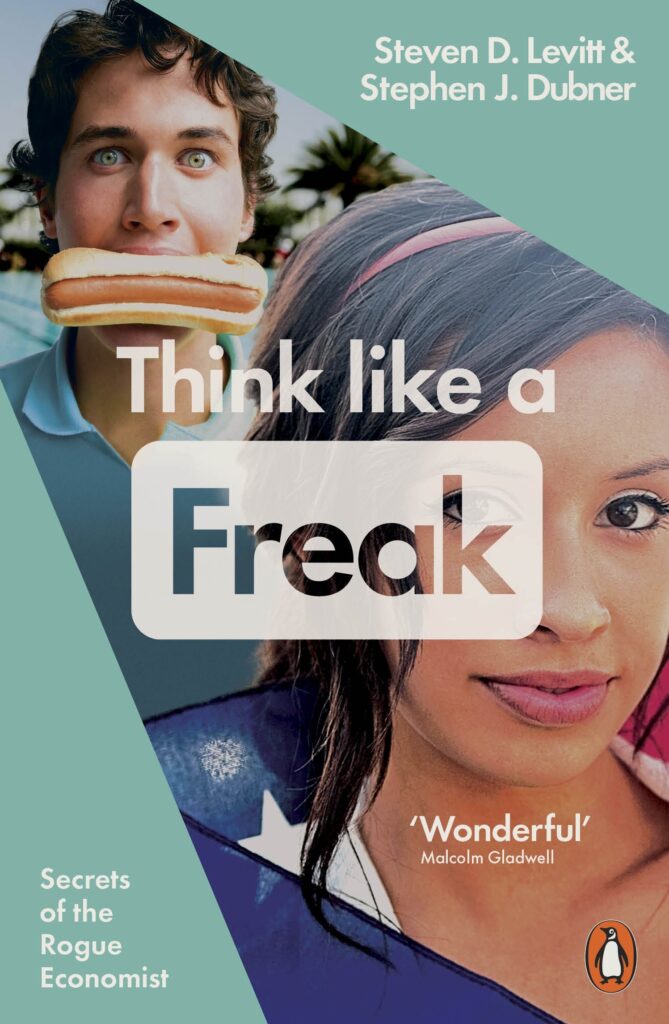
“THINK Like a Freak” is written by the authors of “Freakonomics,” University of Chicago economist Steven Levitt and New York Times journalist Stephen J. Dubner. Citing their research, they say that our biases — political, intellectual or otherwise — color our view of the world. They also found out that it is mostly the “smartest” people who “tend to seek out evidence that confirms what they already think, rather than new information that would give them a more robust view of reality.”
According to the authors, we should acknowledge that there are some, if not many, things we know nothing about. “Until you can admit what you don’t yet know,” they said, “it’s virtually impossible to learn what you need to.”
They noted that the hard issues that government officials face every day involve questions that can’t be “answered merely by assembling a cluster of facts; they require judgment, intuition, and a guess as to how things will ultimately play out. Furthermore, these are multi-dimensional cause-and-effect questions, which means their outcomes are both distant and nuanced. With complex issues, it can be ridiculously hard to pin a particular cause on a given effect.”
In short, Levitt and Dubner, said, “it can be hard to ever really ‘know’ what caused or solved a given problem — and that’s for events that have already happened. Just think how much harder it is to predict what will work in the future.”
This is exactly what many of us don’t want to hear from experts and politicians, especially those running for office. We want to be assured that there are “solutions” to the current problems. We are eager to believe anyone who appears “smart” and has the “right” credentials: education, experience, reputation and an unshakeable belief that s/he knows what s/he’s talking about.
However, as Levitt and Dubner would put it, “It isn’t only that we know less than we pretend about the outside world; we don’t even know ourselves all that well. Most people are terrible at the seemingly simple task of assessing their own talents.” Moreover, “just because you’re great at something doesn’t mean you’re good at everything.”
In any case, you might want to compare your high hopes as a CNMI voter on Election Day in 2022 with your unvarnished sentiments today about the politicians you voted into office.
Theory and practice
“Smart” leaders, we are told, know that people respond to incentives. All we need to do is to find the right “incentives” and, voila!, people will act the way they should. That’s the theory. In practice, Levitt and Dubner said it is not always easy to figure out the right incentives. “Different types of incentives — financial, social, moral, legal, and others — push people’s buttons in different directions, in different magnitudes. An incentive that works beautifully in one setting may backfire in another.”
The key, they added, “is to think less about the ideal behavior of imaginary people and more about the actual behavior of real people.” Spoiler alert: Real people are unpredictable. They “are complicated creatures, with a nuanced set of private and public incentives, and [whose] behavior is enormously influenced by circumstances.”
Nor surprisingly, plenty “of incentives fail — and some fail so spectacularly that they produce even more of the bad behavior they were meant to stop.”
As an example, Levitt and Dubner mentioned Mexico City’s anti-air pollution measure that required drivers to leave their cars home one workday each week, with the particular day determined by the car’s license-plate number. Fewer cars would mean more people using public transportation and less pollution overall. That’s the goal. The actual result: There were more cars on the road, no increase in the use of public transportation, and no improvement in air quality. Why? “In order to skirt the license-plate ban, a lot of people…bought a second car — many of which were older, cheaper gas guzzlers.”
Welfare, to cite another example, was supposed to be a much-needed helping hand and a temporary relief while the recipient looked for a job. Instead, for many recipients, remaining on welfare and finding ways to “game” the system became the job itself.
I myself suspect a possible link between the prevalence of NCDs and the virtually “free” healthcare made available by the CNMI government, with a significant assist from the federal government. Some people have told me that they’re not overly worried about their health because they know the hospital will take care of them. Some said they don’t need health insurance because they can always go to CHCC, which will send them to a Guam or U.S. hospital if needed. To be sure, all of this is anecdotal. But it could serve as a fascinating subject for further research.
Back to Levitt and Dubner. They remind us that “no individual or government will ever be as smart as all the people out there scheming to beat an incentive plan.” It’s also easy “to envision how you’d change the behavior of people who think just like you do, but the people whose behavior you’re trying to change often don’t think like you — and, therefore, don’t respond as you might expect.”
Send feedback to editor@mvariety.com











